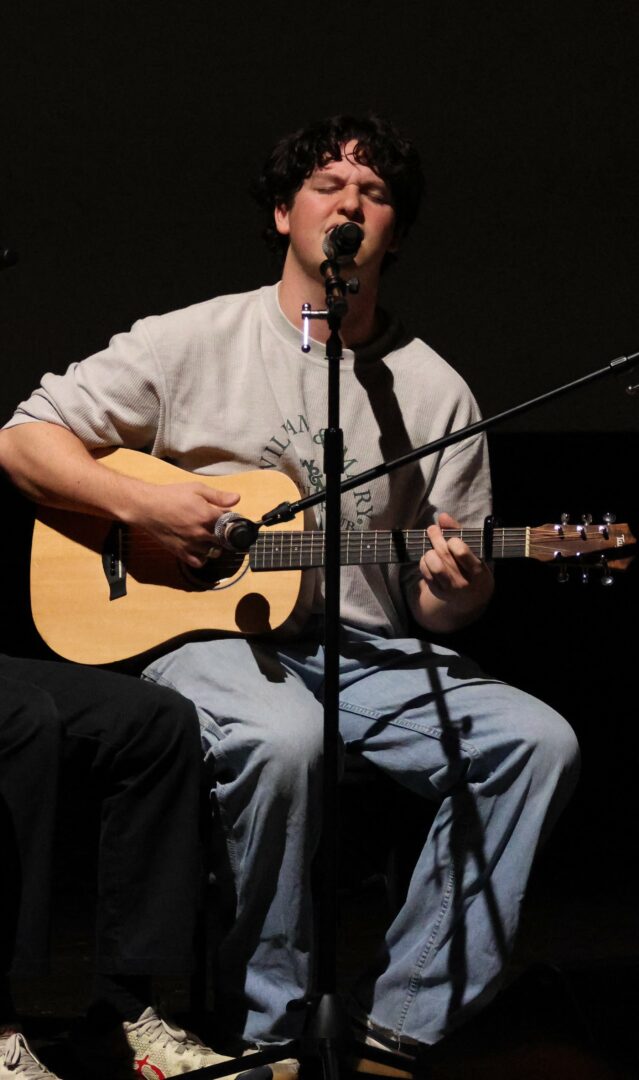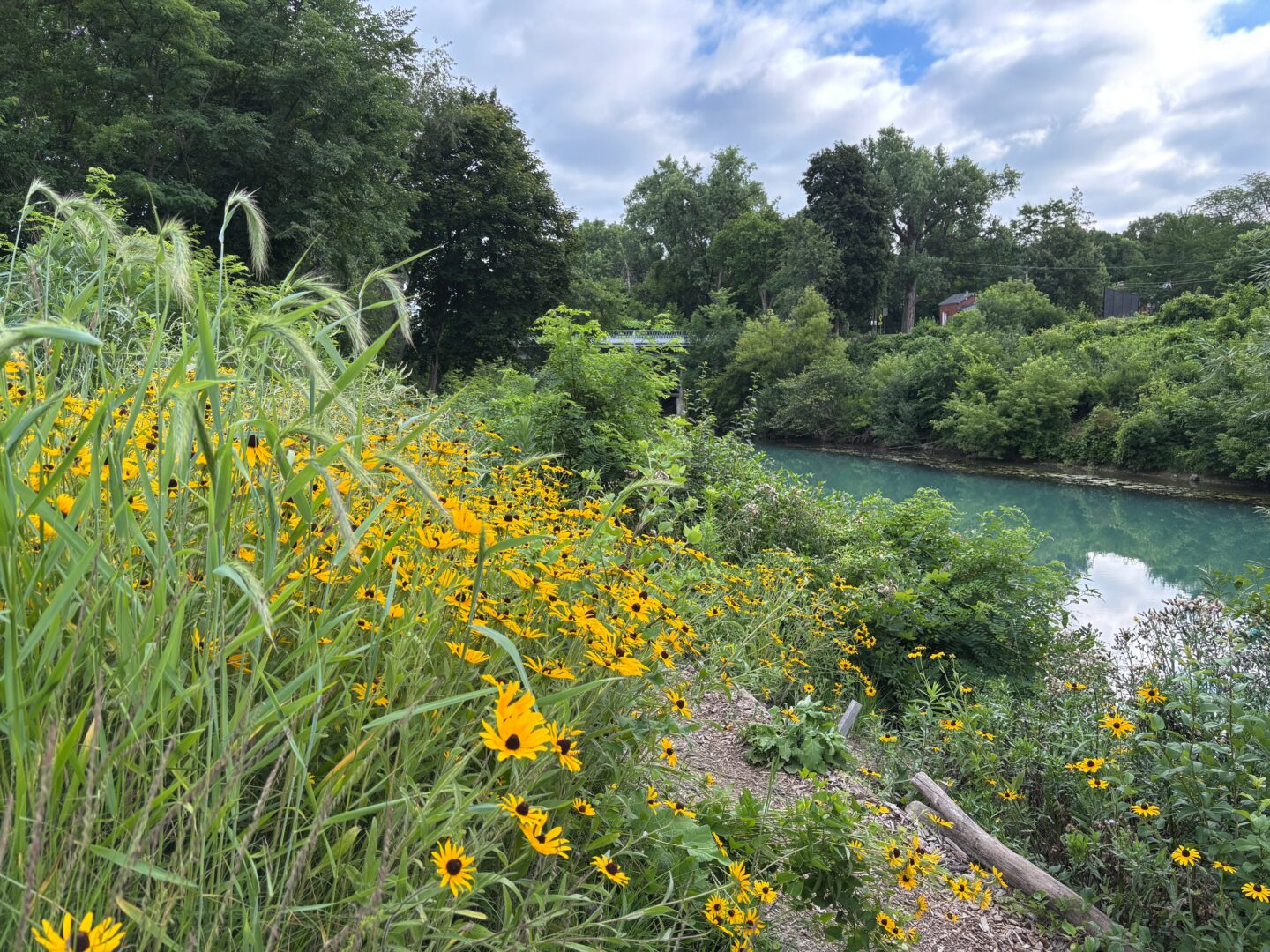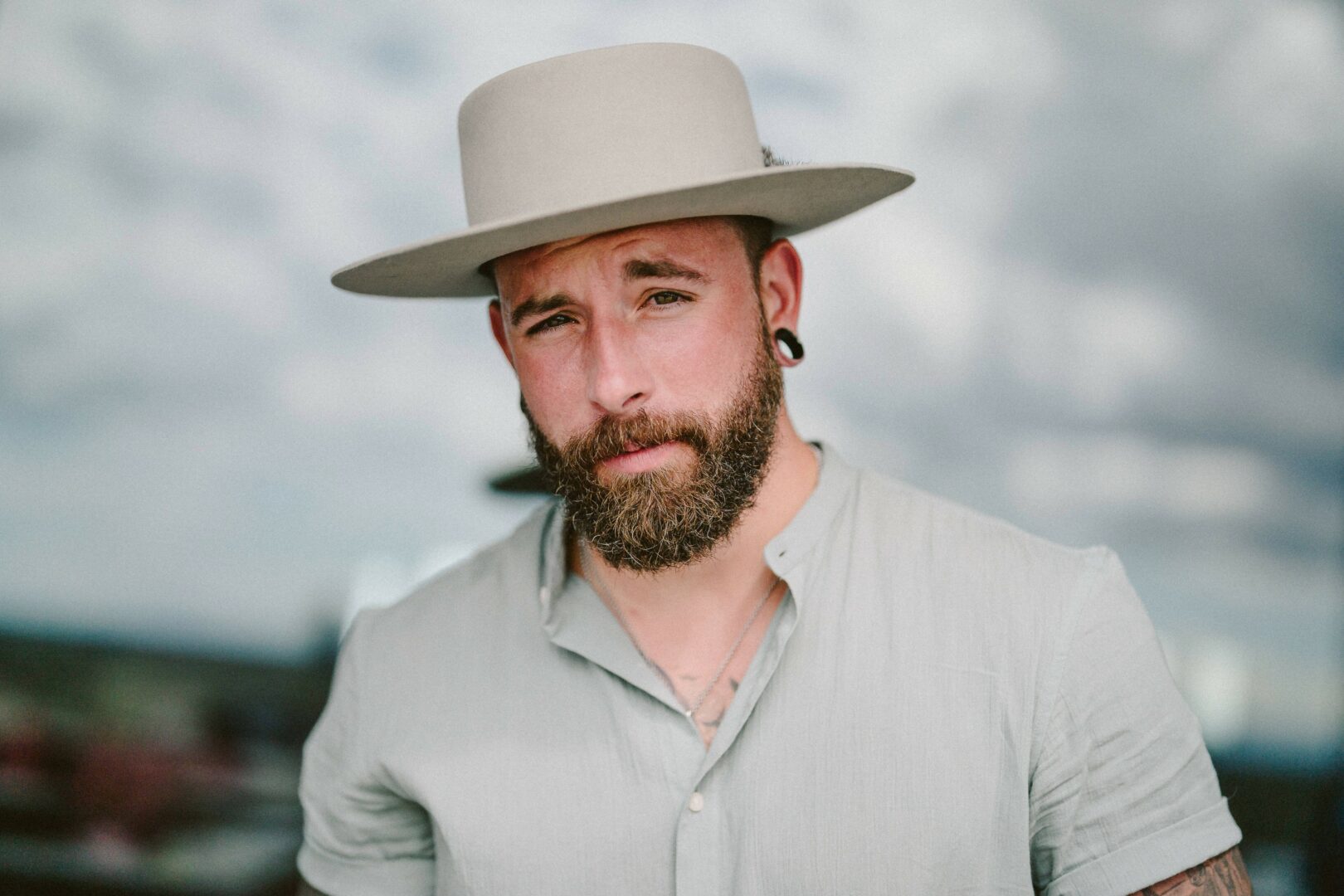We’re excited to introduce you to the always interesting and insightful Matt Eyles. We hope you’ll enjoy our conversation with Matt below.
Hi Matt, thank you so much for opening up with us about some important, but sometimes personal topics. One that really matters to us is overcoming Imposter Syndrome because we’ve seen how so many people are held back in life because of this and so we’d really appreciate hearing about how you overcame Imposter Syndrome.
When I was a freshman in high school, I was invited to the Philadelphia International Music Festival for piano performance, hosted at Bryn Mawr college. I had been playing classical piano for almost 10 years at the time, and had developed a confidence in my abilities that gave me the assuredness to attend the program. It was a weeklong intensive, with musicians around the world being invited and famous pianists hired as the faculty. From the minute I arrived on campus and walked past a few practice rooms to get to the registration desk, my imposter syndrome went through the roof. These kids were far more technically advanced than I was, playing pieces that were noticeably above my level. All of a sudden, I went from a big fish in a small pond to a big fish in a shark tank. I felt as if I didn’t belong, and it really took a toll on my confidence, affecting my ability to perform pieces that I had mastered months prior as well as socialize with the other students.
I spent most of the program with the sinking feeling that I was never meant to be a musician until one day, in an ear training class (ear training basically means how well you can interpret music just by hearing it, as opposed to reading it on a page), when I accurately identified some musical passages by ear and left the other pianists shocked. These students who had been playing circles around me all week were in awe of how I was able to do this; it was here that I learned that I had my own skills that set me apart, regardless of how “hidden” they may have been. I realized that I belonged at the program (funny how it took me that long to realize, as I was the one who was invited to it.) The jealousy that had plagued me the whole trip turned into admiration of the other students — upon realizing that we were essentially equal, I was able to appreciate the skills that they had spent more time developing than I had, and find inspiration from their abilities.
As I went onto college and met countless musicians above my level, I made a point to keep these lessons I learned at PIMF at the forefront of my mind — however insecure I may have felt at my peers’ abilities and success, chances are there’s something about me that they’re aspiring to reach as well. I realized that all of us (more or less) have the same amount of time on Earth, and we can spend that time being jealous and self-deprecating, or in admiration of others and using that admiration as motivation to grow as individuals.
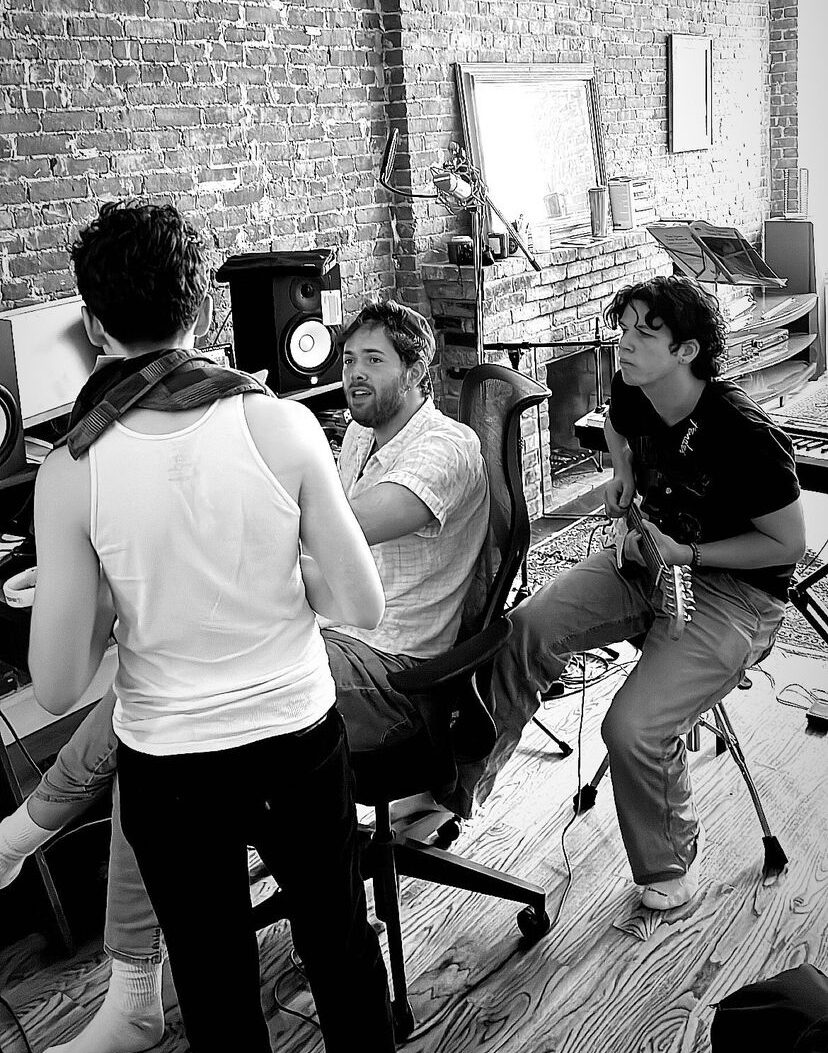
Thanks for sharing that. So, before we get any further into our conversation, can you tell our readers a bit about yourself and what you’re working on?
I am a musician based out of Dublin, and I professionally arrange, compose, and perform. Ever since I was a kid, I loved making music — I would sit at the piano for hours and procrastinate on my Beethoven by learning how to play my favorite songs by ear, since I was never able to find free sheet music online. I quickly learned that my ear is what set me apart from other pianists; I would never practice for my weekly lessons, absolutely crash and burn when I had to play it for my teacher, then she would demonstrate it once or twice herself and I would have it down, as I then would know what it needed to sound and feel like, whereas the information printed on the page was never enough for me to grasp it fully. It actually got to a point where my teacher would purposefully not demonstrate it to me because it felt like “cheating”.
As I got older, I started developing more of my music-related interests, joining musical theater singing lessons with the Haddonfield Theater Arts Center and several a cappella groups and choirs in high school. I assumed the Music Director role in my high school a cappella group, CoEd, and quickly learned that my favorite thing to do was arrange songs for the group (essentially turn our favorite pop songs into SATB choral pieces). It felt like I was piecing a puzzle together, where every individual line needed to work on its own, as well as in the greater picture of the song. This felt like a fusion of my love of music and my love of problem-solving, and I was able to develop my ear even further. My piano abilities improved as well, as I became keener on identifying how a piece needed to sound and feel emotionally right off the bat, as well as what chords and notes were being played. I began composing my own music as well, which is a journey that I continue on to this day.
I knew that I didn’t want to be a professional pianist, as I valued the creation of music and the freedom of exploration too much. I applied as a composition major (albeit with next-to-zero formal composition experience) to the Blair College of Music at Vanderbilt and got rejected without a prescreen, which gave me a major hit to my confidence. They offered me a spot in the College of Arts & Sciences and I accepted, hoping that within the next year I could build my composition skills and apply again. Unfortunately, Blair accepts around 1-2 composition transfers every year and I was rejected again, and I needed to change my course. I thought about transferring out of Vanderbilt, but I had a major force keeping me there – my a cappella group, the Vanderbilt Melodores. It may seem like that’s a stupid reason to stay at a college, but my time with the Melodores gave me countless hours of experience, free international travel, valuable connections, internships, lifelong friends, and my greatest leap as a musician and an artist that I’ve ever experienced. I also got to continue developing my ear and arranging ability with the group, going onto create some of my best work, which has since garnered millions of views across social media platforms (you can fact check me on that @Vanderbiltmelodores). I also secured dozens of arranging jobs for other high school and college a cappella groups, selling arrangements that I had written for the Melodores as well as original commissions for ICCA & ICHSA sets. Most notably for me, I secured an internship under fellow Melodore alumnus Shaan Ramaprasad, a professional string arranger based out of New York. It was here I got to grow as an arranger and producer, getting my first taste of the professional world of arranging. I got to meet and make music with some of my all-time favorite artists, learn soft skills of the music business, and gain the confidence I needed upon graduating to go into the professional music world.
Needless to say, I made the right choice by staying at Vanderbilt, and as for my area of study, I was able to figure out a way to grow as a musician and storyteller without needing to major in music at all. By my sophomore year, I had done a few film scores with the Haddonfield Theater Arts Center, and enjoyed it enough that I became a Cinema & Media Arts major. During my time in the major, I focused on editing, directing and mostly film scoring, which all lent themselves to the skills I needed to improve upon for my music career. I improved at pacing, storytelling, executing a vision, and being confident in my skills when embarking on a project. While I was in college, I scored around a dozen short films, including Outstanding Short Film winner “Nova”, directed by my longtime friend and creative partner Antony Post.
Since graduating, I’ve had a difficult time landing on a vision for my future. Clearly I’ve worn around a million hats since I was a kid, and found the most joy out of consistently improving across the board as opposed to in one specific area. All I know for sure is that I love music. I pay my bills a few different ways — primarily, I’m a freelance arranger; I’ve gotten opportunities to arrange for the Chicago Philharmonic as well as background harmonies and string parts for professional artists. I still arrange for a cappella groups like the Melodores, which helps put some money in the bank (and keep my legacy alive — I’m old and I do what I can). My day job (or night job, I should say) is as a piano player and singer at In Vino Veritas, a new wine bar in Dublin City Centre — if you find yourself in Dublin on a Friday night, I highly recommend; we are the sister bar of the famous Dublin restaurant, The Unicorn. I love my job at the wine bar; I’m able to have a great time sharing my gift with real people and getting in-the-moment feedback, as well as building my performance skills. My greatest asset is my ability to create on-the-spot piano arrangements of almost any song I get requested to me: if someone wants to hear a smooth, lowkey, piano lounge version of Use Somebody by Kings of Leon, I can deliver. The only downside is that I have to sing about 2 Piano Man’s per shift, and that one takes a toll on the voice. Tips aren’t bad though.
Most recently, Antony and I have been commissioned to write a musical! I can’t say much about it, but it’s taking up a lot of my time and creative energy in the best possible way. It feels like I was always meant to be doing this, as I have been in the theater world almost as long as I’ve been playing piano. Writing a musical has felt like combining all the things I’ve spent my whole life developing: I get to go wild and create my own music, arrange vocal harmonies and instrumental parts, tap into my inner theater kid, work on my music production and mixing abilities, and focus on storytelling and pacing. This will without a doubt be the biggest cohesive project of my life so far, and my hopes are high! You can stay up-to-date on this journey (as well as all of my other journeys as a musician) by following me on Instagram @matteyles23 or by visiting my website matteylesmusic.com.
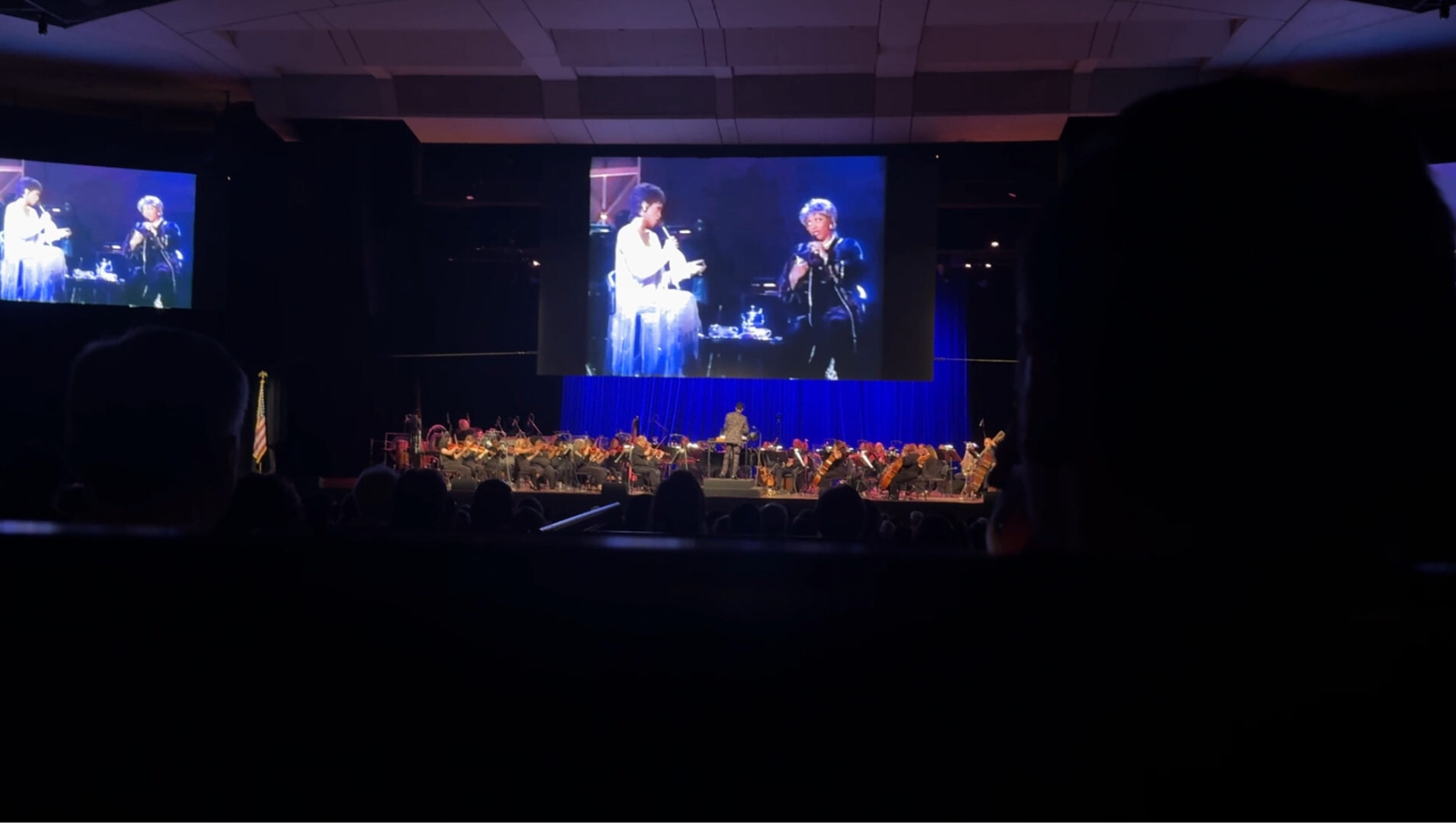
If you had to pick three qualities that are most important to develop, which three would you say matter most?
I would say the biggest quality that I’ve learned to hone in my career is restraint. I’ve always known that I can touch people with music, and more often than not it’s gotten me a bit too excited to flex all of the music theory knowledge I’ve ever learned in a single song or arrangement. Bigger is better, right? WRONG. It’s always a balancing act when trying to subvert people’s expectations in a successful way, because it’s so easy to go off the deep end and lose an audience entirely. I especially learned to hone this skill as an arranger for the Melodores — my arrangements are not easy by any means, but they remain accessible, and they make an impact on both the audience and the singers themselves. My goal is always to make each individual line singable and catchy; this helps the singer feel more connected to their part and gives the audience that much more to latch onto as a listener; however, there needs to be a balance. As a songwriter and composer, I’m still working on finding this line between what feels right and authentic to me in the moment and what will resonate with an audience hearing my work for the first time. What’s worked for me is to throw as much at the wall as I can off the bat, then listen to it at a different speed or in a different key: this gives me a brand new set of ears and a whole new lens for me to critique what I’ve written.
Another important quality I’ve learned is how to be genuinely motivated to create. There’s nothing more obvious to me than when an artist is phoning in work to meet a deadline, and as a professional procrastinator, I’m among the worst culprits of this. It hits me the worst when I have an arranging commission for a song I don’t particularly like, and I’m unable to find any redeeming qualities in the song to latch onto for inspiration. Granted, this is a pretty niche problem to have, but I think it extends to all areas. What I’ve learned to do to make sure I export a product to my standards is to try and listen to the song with fresh ears (see paragraph `1), but also try and go in a completely new direction. There’s nothing wrong with starting from square one if there’s no clear direction in your work — chances are your audience is going to feel the same way when listening to it. Sure it’s annoying, but try not to think of your scrapped ideas as a waste of time but rather an exercise that you can grow and learn from when trying again.
Lastly, and I know everyone says this but it bears repeating, be okay with failure and use it as a tool for finding what you really care about. As I said, I got rejected from Blair twice, and I really had to sit and think whether pursuing music in an academic setting was gonna be the right path for me. As I purposefully neglected to say, I got rejected from the Melodores twice as well. I had to try and come to terms with the fact that this dream I had for my college experience was never going to come true, and I couldn’t accept it. My sophomore year, I walked into the audition room with nothing left to lose, and I got in. In either case, my failures forced me to sit with myself and figure out what was really important to me and my future. If I had chosen transferring into a new music school over the Melodores, maybe I would have long been burned out by this point and gone into consulting. I truly believe that I made the right choice because of the failures in both aspects of my life.
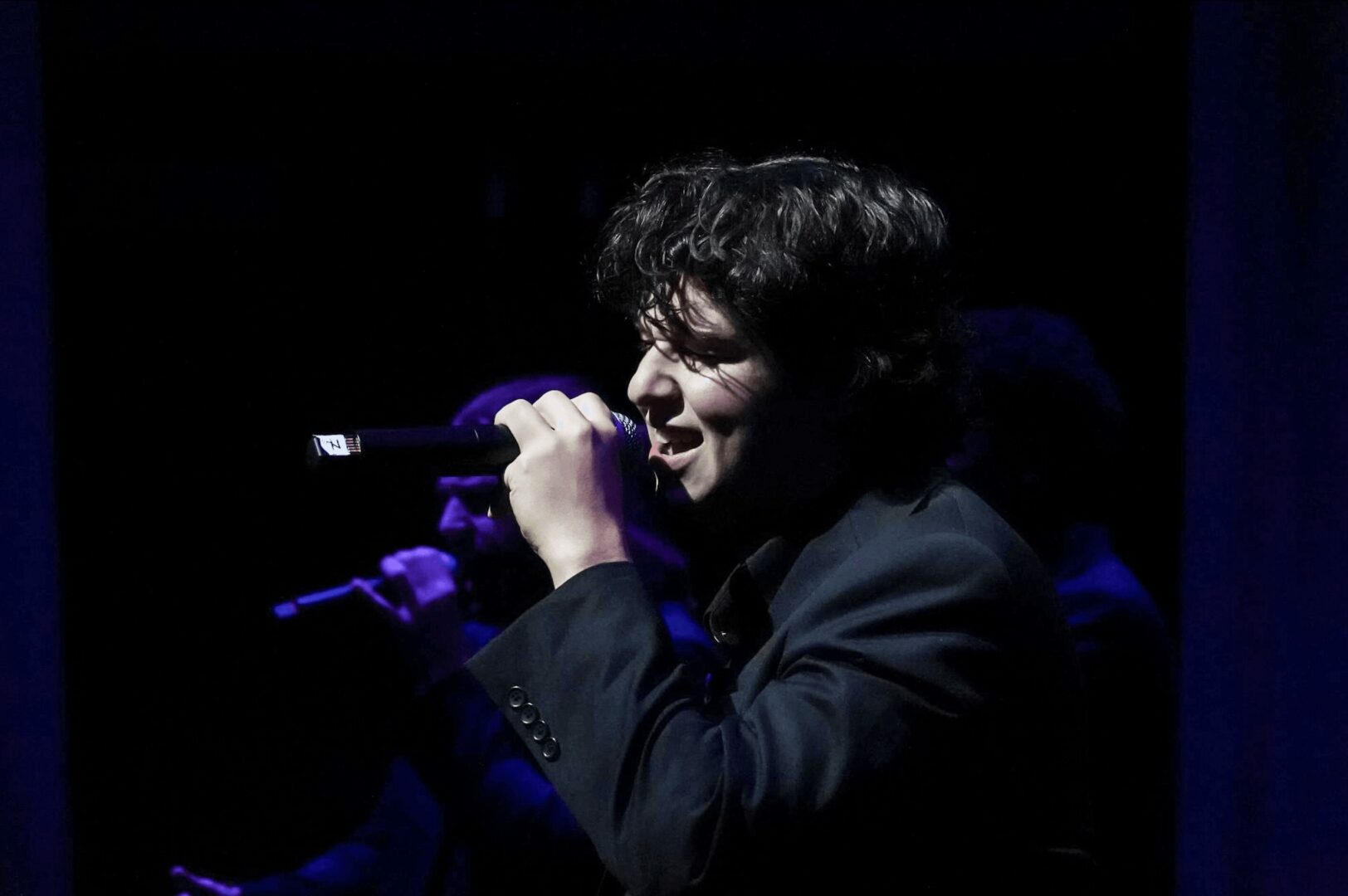
What was the most impactful thing your parents did for you?
The most impactful thing my parents did for me was not forcing any path or activity onto me. They put me into every sport they offered in Haddonfield, and when I sucked at pretty much all of them, they knew when to cut their losses and try something else, because they knew my time was better spent on things I was actually passionate about. And thank god they did, because I was able to find piano and theater, skills that I really had and currently make money off of as an adult (good foresight knowing my baseball career wasn’t going to pan out).
Even while I was learning piano as a kid, it could have been so easy to butt in when I obviously wasn’t practicing my classical music, which they did to an extent but quickly learned it was a lost cause. The time I spent not practicing what I was supposed to practice laid the groundwork for the genuine passion for creativity and exploration of music that I still have to this day. It made the piano feel like a really advanced toy instead of a chore, and it still feels like that even when I have to finish a song or arrangement by a certain date. I’m still able to tap into that childlike wonder that my parents let breathe as a kid, when it could’ve easily been killed by age 10. Thanks Mom and Dad:)
Contact Info:
- Website: https://matteylesmusic.com
- Instagram: matteyles23
- Facebook: Matt Eyles
- Linkedin: Matt Eyles
- Youtube: Matt Eyles
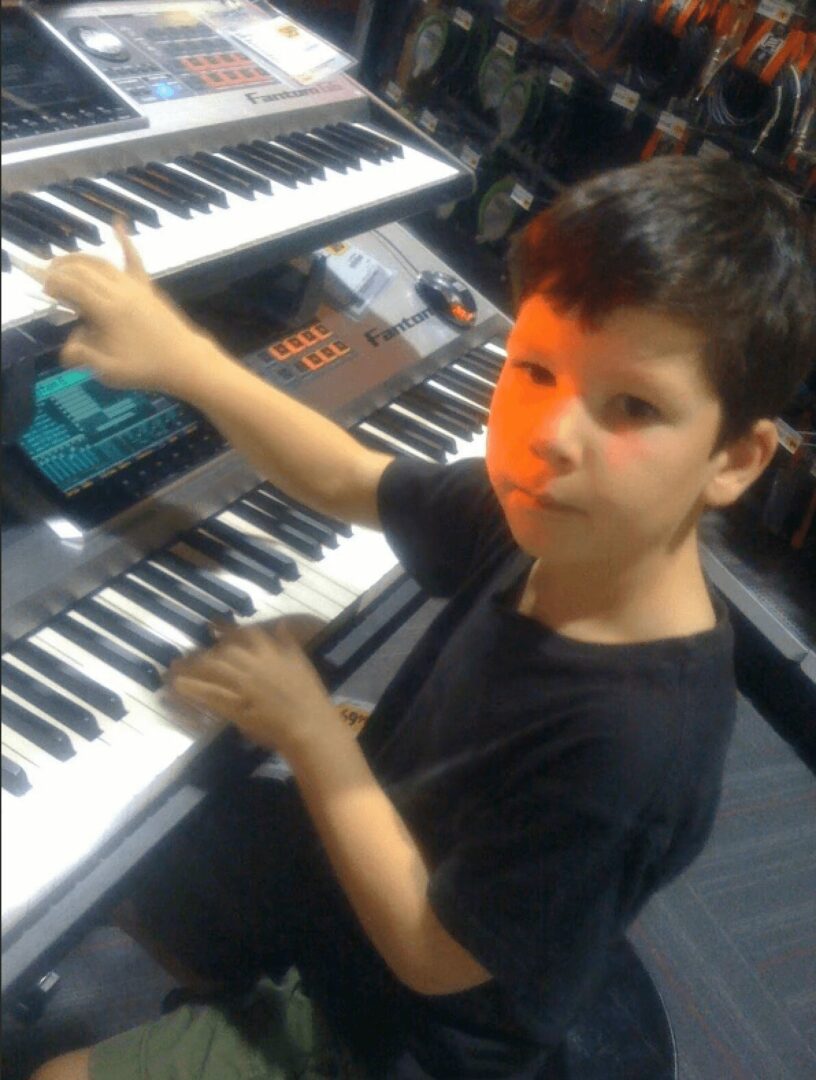
Image Credits
Jordan Haas
so if you or someone you know deserves recognition please let us know here.

